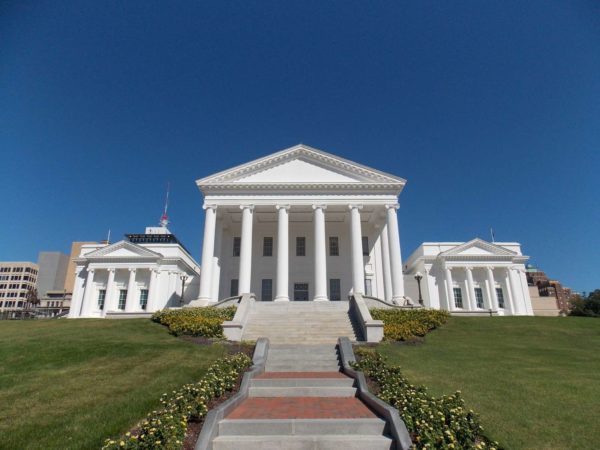Today (Friday) marks the last day lawmakers can file legislation to be considered in the 2022 session.
Several of the bills Arlington County legislators introduced align with County Board priorities — from making permanent electronic participation in public meetings to increasing state funding for affordable housing and including race and ethnicity on driver’s licenses.
They’ve also introduced legislation to address issues that came up in the community last year.
After residents exposed poor living conditions at the Serrano Apartments to ARLnow, Del. Alfonso Lopez (D-49) pre-filed a handful of bills aimed at strengthening tenant protections. Lopez also appears to have taken inspiration from the Advanced Towing saga with a bill that would make tow truck driver violations subject to the Virginia Consumer Protection Act.
Here’s a roundup of some other bills Arlington’s lawmakers put forward.
Policing
- Independent policing auditor: This bill, House Bill 670, would allow Arlington County to appoint an independent policing auditor who will support the law enforcement Community Oversight Board that was created out of the Police Practices Group recommendations. Del. Patrick Hope (D-47) is chief patron of the bill.
- Law-enforcement officers; conduct of investigation: HB 870, which Lopez introduced, would require an officer who was involved in a shooting to be interviewed within 24 hours of the incident.
Environmental issues
- Beverage container deposit and redemption program: HB 826, introduced by Hope, would establish a beverage container deposit, refund and redemption program involving distributors, retailers and consumers. There would be an advisory committee, required reporting and civil and criminal penalties for violations.
- Packaging Stewardship Program and Fund: The bill, HB 918, would allow the state Department of Environmental Quality to charge sellers in the commonwealth a fee for the amount of packaging their products use and if they’re easily recyclable. Those fees would be paid into a fund and used to reimburse participating localities for expenses related to recycling, invest in recycling infrastructure and education and pay the program’s administrative costs. Lopez introduced the bill.
- Parking of vehicles; electric vehicle charging spots; civil penalties: Senate Bill 278 prohibits a person from parking non-electric vehicles in electric vehicle charging spots. It sets a civil penalty between $100 and $250 with the possibility the vehicle is towed or impounded. Sen. Adam Ebbin (D-30) introduced the bill.
- Driving Decarbonization Program and Fund. This legislation, HB 351, would establish a program and a fund that would assist developers with non-utility costs associated with installation of electric vehicle charging stations. It was introduced by Del. Rip Sullivan (D-48).
Health
- Insurance; paid family leave: SB 15, introduced by Sen. Barbara Favola (D-31), would establish paid family leave as a class of insurance that would pay for the income an employee loses after the birth of a child or because the employee is caring for a child or family member.
- Hospitals; financial assistance for uninsured patient, payment plans: This bill, SB 201, requires hospitals to screen every uninsured patient, determine if they’re eligible for financial assistance under the hospital’s plan and create a payment plan. The bill also prohibits certain collection actions. Favola introduced the bill.
Rights
- Constitutional amendment; marriage; fundamental right to marry, same-sex marriage prohibition: This constitutional amendment, SJ 5, would repeal the constitutional provision defining marriage as only a union between one man and one woman as well as the related provisions that are no longer valid as a result of the U.S. Supreme Court decision in 2015. Ebbin introduced the amendment.
- Absentee voting; verification by social security or driver’s license number: SB 273, introduced by Ebbin, would make optional the current absentee ballot witness signature requirement. It would give the voter the option to provide either the last four digits of their social security number or the voter’s valid Virginia driver’s license number instead.


